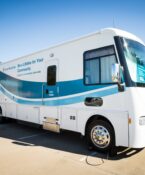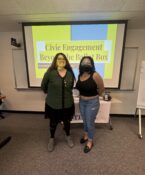Should you leave the city during COVID-19?
By Alex Branch
Tensions are rising in some communities as New York City residents flee the densely populated city for other areas amid the COVID-19 outbreak. We asked Dr. Ubydul Haque, Assistant Professor of Biostatics and Epidemiology in the HSC School of Public Health who has researched lessons learned from past coronavirus outbreaks, about the risks of such travel and whether North Texas residents should consider seeking more sparsely populated areas.
Q: First of all, should New Yorkers be fleeing the city?
A: No, New Yorkers should not leave the city due to coronavirus. They risk unknowingly spreading the virus to other cities and areas if they are infected but asymptomatic. Traveling, particularly movement using public transport, increases the chance of disease transmission. The best thing for New Yorkers is to stay indoors and practicing social distancing.
Q: Does the same logic apply to North Texans?
A: Yes, if all populations start to evacuate the big cities to smaller cities or rural areas, they will congest those areas. Increased COVID-19 transmission in those areas will quickly strain the limited health care facilities and resources. That’s why evacuating the city to a rural area is more dangerous. Also, the virus is not just going to be localized or centralized to dense cities, and moving away from these areas does not guarantee safety. It puts more people at risk if you unknowingly bring the virus with you.
Q: Is there evidence that staying put reduces transmission?
A: Yes, Malaysia is an example. Starting March 18, Malaysia enacted a Movement Control Order strictly limiting movement in the country. Although they still have new cases reported daily, the number of new cases has flattened and the growth rate is not as rapid as before. Compared to Italy, Malaysia manage to flatten the curve.
Q: What about people who do – or must – travel?
A: People who do travel should limit their contact with people while traveling out of the city. Maintain proper hygiene during travel and limit contact with “high touch” surfaces. Travelers who take medication regularly should ensure they have enough medication in case they show symptoms and have to self-isolate. The goes for allergy medication, too, because some allergy symptoms are similar to COVID-19 symptoms. Follow updated information from the official authority on the status of the disease in the area.

![Uyen Sa Nguyen Scaled[58]](https://www.unthsc.edu/newsroom/wp-content/uploads/sites/16/Uyen-Sa-Nguyen-scaled58-145x175.jpg)




Social media